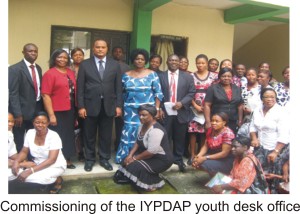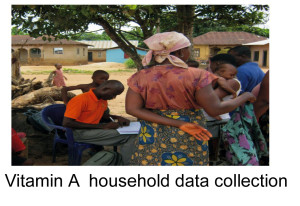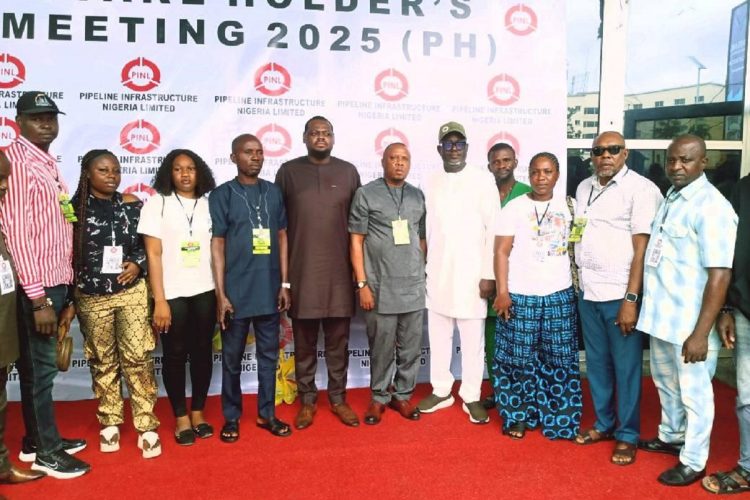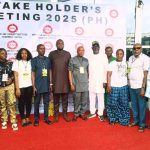
Vestibulum commodo volutpat laoreet
May 8, 2014
Canada to Invest $5bn in Producing 3,000mw in Delta State
May 12, 2014 1.   BRIEF HISTORY OF FORWARD AFRICAÂ
Organizational Profile                  Â
Forward Africa (FOFA) is a non-profit development organization founded in 1992 to strengthen the capacity of individuals, especially women and youths within communities to respond to their identified basic needs, using resources within their communities. The organization is registered with Corporate Affairs Commission in 1995 and has board of trustees.
FOFA core staff is made up of the Executive Director, Programme Manager, Finance/Account Manager, Admin/HR Manager, Administrative Officer, Monitoring & Evaluation Officer, Project Officers and Support Staff. FOFA has a pool of competent staff whose capacities have been extensively developed through training, mentoring and participation in several project activities.
Vision and Mission
 Vision:
A society where everyone has access to the basic things of life
Mission:
A development organization that seeks to improve life through partnerships, advocacy and capacity building for sustainable development
Objectives:
- To reduce the level of poverty and hunger and empower communities especially women and youths
- To assess, evaluate, document and disseminate information on prevailing development issues for growth of the society
- To cooperate with institutions, government ministries, departments and agencies (MDAs), policy makers for policy implementation for the prevention and eradication of poverty and diseases.
2.   AREAS OF SPECIALIZATION
Health/Education
*Adolescent health
*Maternal and child health
*HIV/AIDS Prevention
*Family life and Empowerment Education
Democracy and Good Governance
*Electoral Process and Election Monitoring
*Budgeting and Budget Monitoring
*Community Engagement in Governance
*Civic Education
Agric & Economic Development
*Agriculture/Agro Allied Activities
*Micro Credit Activities
*Youth and Women Empowerment
*Livelihood and Empowerment in Education
Research & Documentation
- BRIEF DETAILS ON FOFA’S KEY PROJECTS, PAST & PRESENT
FOFA has implemented the following projects under:
- Democracy and Good Governance:
- Capacity building of National Assembly staff committee on Agriculture to support legislators to achieve MDGS/NEEDS goals of poverty reduction, with grants from National Democratic Institute for International Affairs (NDI) 2007.
- Capacity building of People and Representation to initiate and strengthen the engagement of constituency members with their representatives at all levels for poverty reduction with support from National Democratic Institute for International Affairs (NDI) 2008.
- People and Participation in credible elections for good governance with focus on Issue Based Voting, with grant from National Democratic Institute for International Affairs (NDI) 2010/2011.
- Strengthening Local Involvement in Governance for Economic Growth and Development with support from Pact Nigeria in partnership with Foundation for Partnership Initiative in the Niger Delta (PIND).
- Health/Education:
- Adolescent reproductive health project targeting in school and out of school youths with grant from John D and Catherine T MacArthur Foundation 1998-2006.
- Women Health and Economic Empowerment Scheme (WHEES) implemented with 26 community based women associations spread within Imo and Rivers States to improve their health and income generating capacity with support from Ford Foundation 1999-2006.
- Institutional Capacity Building for community based organizations to initiate and sustain prevention, de-stigmatization, care and support activities for those living with HIV/AIDS with grants support from National Agency for the Control of AIDS (NACA) 2003.
- Rural Youth Reproductive Health and HIV/AIDS prevention with support from International Institute of Education, New York 2006.
- Enhanced safe motherhood project implemented with women of reproductive age, traditional birth attendants and primary health centre personnel in five communities to reduce maternal and infant mortality with support from Ford Foundation 2007.
- Building and expanding partnership to promote integrated programming to improve the reproductive health of in school youths in South East Nigeria with support from Ford Foundation. 2010.
- Building Integrated Programming on Family Life and HIV/AIDS Education, Reproductive Health Services and Livelihood Skills to Youths in Imo and Abia States of Nigeria. (2012 – 2014)
- Research & Documentation
- Conducts baseline and needs assessment which form basis for FOFA intervention planning, monitoring of outcome and evaluation of project impact with benefiting communities.
- Conducted the assessment on Adolescent/HIV/AIDS and Rural Urban Migration in Nigeria in partnership with Brown University, Providence USA and Centre for population Studies (CPS), Abia State University, Uturu 2000-2002.
- Conducted the Sustainable Livelihood Assessment (SLA) which informed the production of the Community Driven Development Plan (CDDP) in Jisike Regional Development Council (RDC) funded by Chevron Nigeria Limited-2006.
- FOFA Participated in the Participatory stakeholders’ evaluation of the 8 operational areas of Chevron Nigeria Limited under their Global Memorandum of Understanding (GMoU) to assess its impact on their host communities since its adoption.
- She also participated in the Beneficiary Assessment/Impact Evaluation of the Second National Fadama Development Project in Imo State 2007.
D.       Agric & Economic Development
- Mutual Aid and Health Benefit Scheme (MAHBS) where the organization facilitated the formation of self help group in communities and encourage members to save and access micro credit for income generating activities (1998)
- Partnered with Community Development Foundation (CDF) to disburse credit to 10 women self help groups 2004
- Partnered with the National Poverty Eradication Programme (NAPEP) as a micro finance institution (MFI) to manage 53 groups and 22 individuals to engage in both Agric and Non-agric enterprises 2006
- Harvest Plus Challenge Project (Multiplication and Dissemination of Vitamin A Cassava Stem.
- LESSONS LEARNED FROM PROJECTS, IMPACT ON LOCAL COMMUNITIES
- We discovered that Government has strong structures and programmes that can be leveraged on to bring about development but they are not fully utilized. These structures are the Ministries, Departments and Agencies (MDAs) with various mandates to improve the lives of the citizens of the state. This understanding helped Forward Africa to increase coverage and will also ensure sustainability at the expiration of funding support.
- Â As an NGO partnering with the government to ensure delivery of specific services through the programmes, it is more result oriented to facilitate and monitor while the government structures (MDAs) implement. Facilitation can come in the form of coordination, providing capacity and providing financial support to enable the MDAs to function in the dearth of the release of approved government funds.
- There is need for regular training for the MDAs as partners to be able to implement activities effectively and efficiently. The reason is that programming continues to change and to achieve desired results, the MDAs must become as informed on issues of interest as the CSOs, knowing best practices. The impact of this on the community is that we have now developed desk offices in the ministries through which communities are assessed.
- Partnership is key to development. When NGOs directly implement, their coverage and impact tend to be insignificant compared to the level of need, but in partnership there is more coverage.
- Bureaucracy is the bane of government. It affects programming and service delivery.
- There is need to continue to inform the people on participation in governance and build their capacity to involve among themselves and then engage with their elected leaders.
- A unified effort of the people in discussions can bring about good governance, providing the opportunity for the people to participate.
- The elected leaders deliberately avoid any interface with their people. They barricaded themselves with unnecessary protocol officers and have become inaccessible.
- Hidden Hunger can be eradicated with Vitamin A Cassava. (Bio-Fortification).
- Agriculture must be mechanized to reduce extreme poverty.
- There is need for tractor, fertilizer, improved seedlings in the Niger Delta Area.
Â
IMPACTS ON LOCAL COMMUNITIES
- The people are now aware that they should interact with their leaders, this knowledge have built their confidence and they are now making efforts to prepare themselves and have tangible reasons for engagement with their leaders.
- Through their advocacy and engagement activities with their representatives, they have attracted the construction of roads, building of health centers, reticulation of transformers, market stores, etc to their communities.
- Most of the community people are now aware of their representatives/elected leaders and the responsibilities attached to their offices.
- There is high demand for the improved Vitamin A Cassava Stems and products.
- WHERE FORWARD AFRICA IS NOW AND WHERE YOU WANT TO BE
Presently, FOFA has been able to create positive impacts on the communities where we work. For example, our activities on empowerment led to a youth cooperative organization, empowered with four brand new motor cycles. And with our 5 years (i.e. 2012 – 2017) Strategic Plans, we hope to be a self sustaining organization whose activities will wholistically impact positively on the communities.











